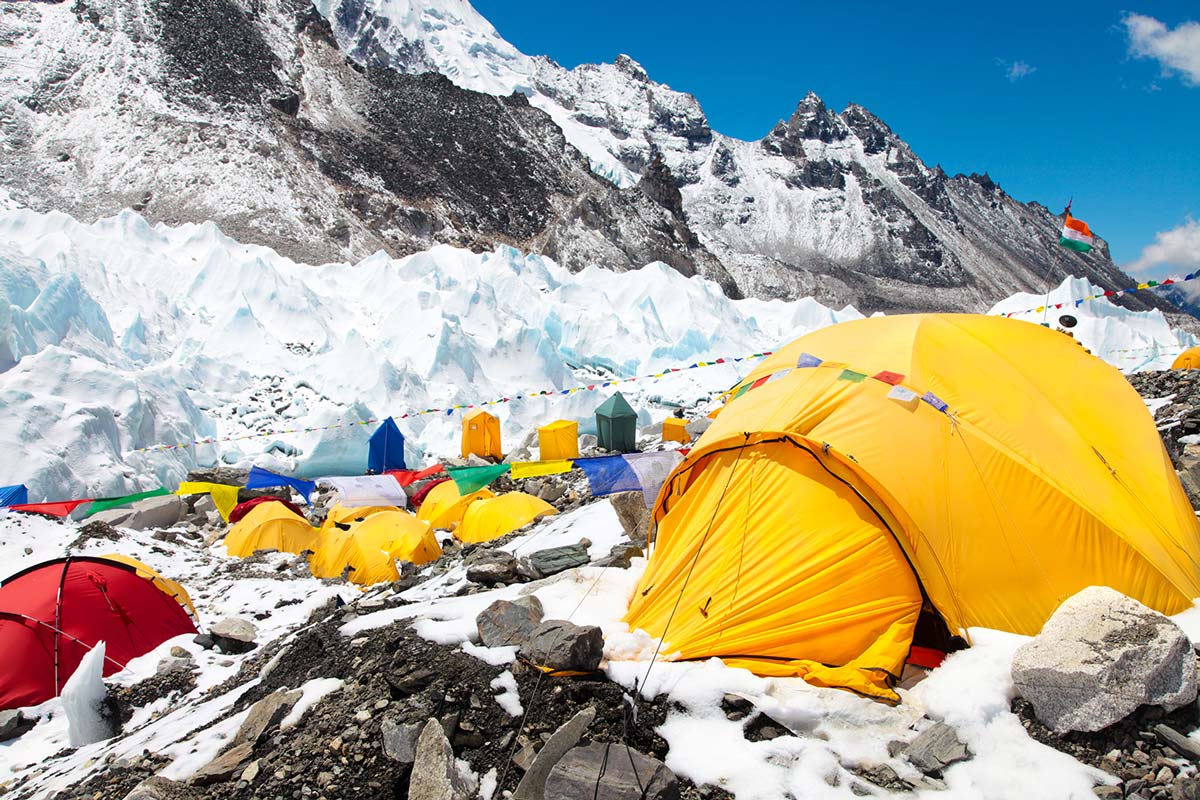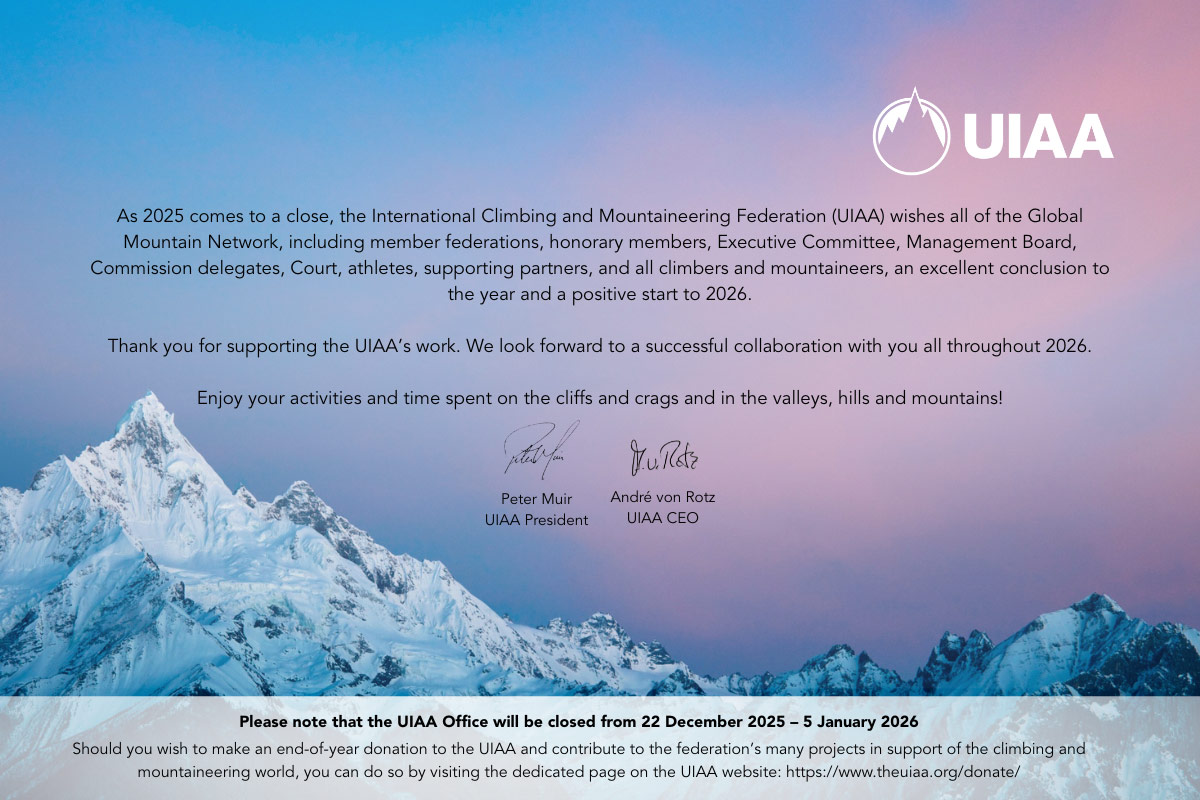In May and June, the UIAA – International Climbing and Mountaineering Federation – published statements in response to two significant climbing stories. The first was related to the 2019 Everest climbing season, the second proposals to construct a cableway up Kilimanjaro. The two statements received significant international media coverage. A key message in both statements was the UIAA’s willingness to work with stakeholders and help find solutions.
To deliver on this pledge, the UIAA Executive Board has endorsed the establishment of a Working Group (WG), which is expected to work closely with UIAA Commissions and concerned members, and whose main objective will be to provide consulting services and advice on matters pertaining to the management of the high mountains of the world. As the foremost international organisation concerned with mountains and mountaineering, the UIAA, with 90 member associations in 69 countries, is uniquely positioned to provide this kind of service. Representatives from ICAR, International Commission for Alpine Rescue, will form part of the WG.
Recent events in the Himalaya, notably on Mount Everest, plus some possible developments elsewhere in the world have prompted the UIAA to set up this body. Currently, the initial members of the WG total several hundred years of cumulative experience in the high mountains of the world on all continents. Additionally, the WG has the ability to pull in, via the member associations of the UIAA, experience and expertise in most countries of the world where mountains are situated. This gives the WG a unique ability to advise on mountain management policy.
The UIAA has expressed its deep concern about “adventure tourism”, mass overcrowding and the lack of experience and responsibility of some tour operators, and ‘adventure tourists’, which has led to several tragic incidents on the high mountains of the world. This is notable on the Seven Summits – the high points on each continent – where the slightest thing going awry can create the conditions for a disaster.
The UIAA WG welcomes the fact that the Nepalese authorities are willing to consider action to prevent the distressing events that occurred on Everest in the recent (2019) climbing season. The actions suggested to the Nepal government by an advisory panel in that country include the requirements that:
– Applicants for permits should have climbed at least one peak of over 6,500 metres
– They should provide a certificate of physical fitness
These measures will certainly help to prevent the kind of tragedies witnessed earlier this year.
It is also proposed that guide companies must charge a minimum of $35,000 per client. This measure is not a major departure from the current situation and is therefore unlikely to have an impact on the number of applications for permits.
The UIAA is open to engaging with the Nepalese authorities to arrive at a fair and equitable solution to the conundrum that is Mount Everest and with other authorities around the world with similar issues.
The WG will convene for its first meeting shortly. Further details on its objectives and recommendations will be communicated in due course.



